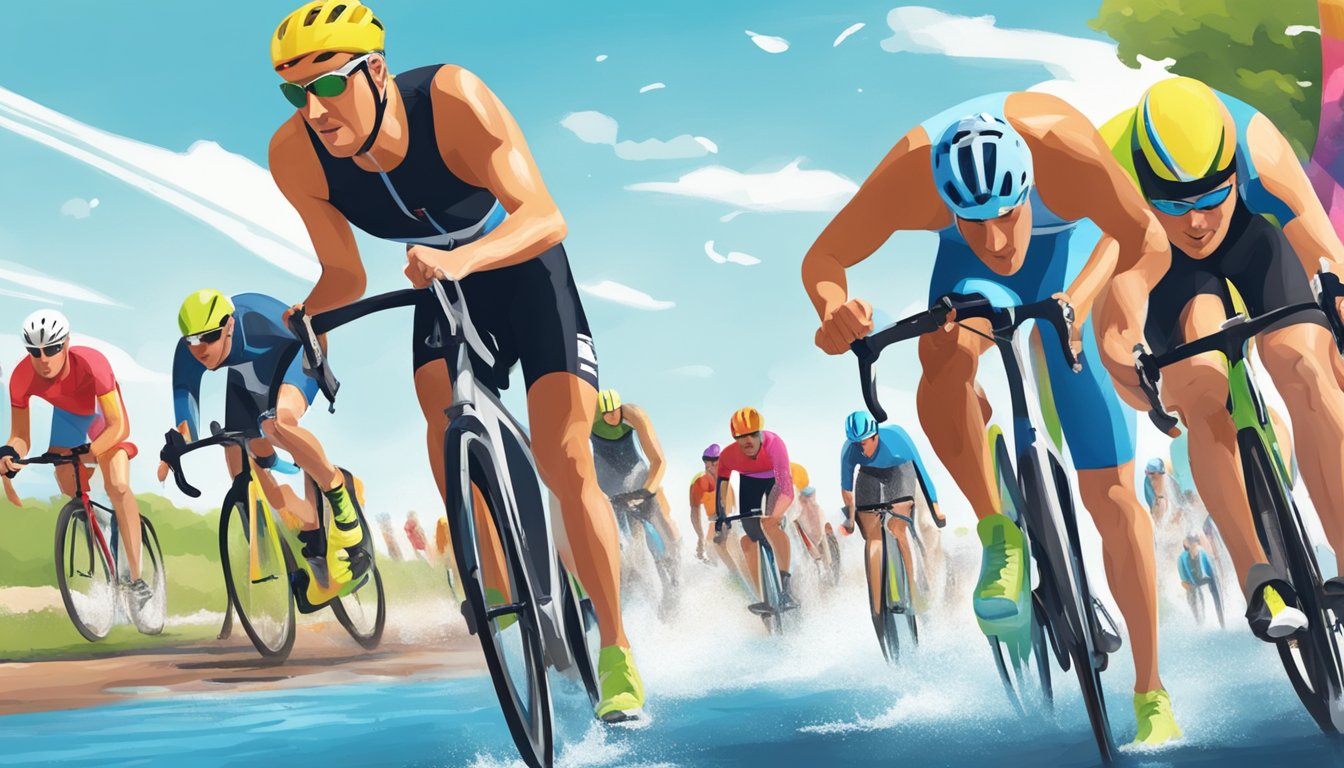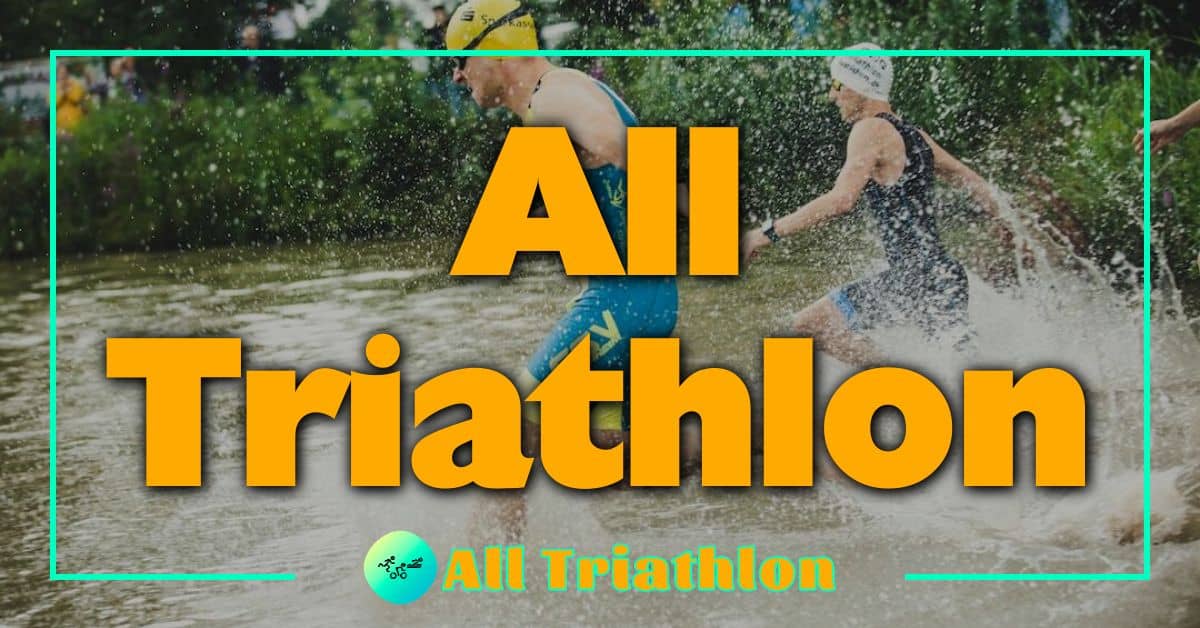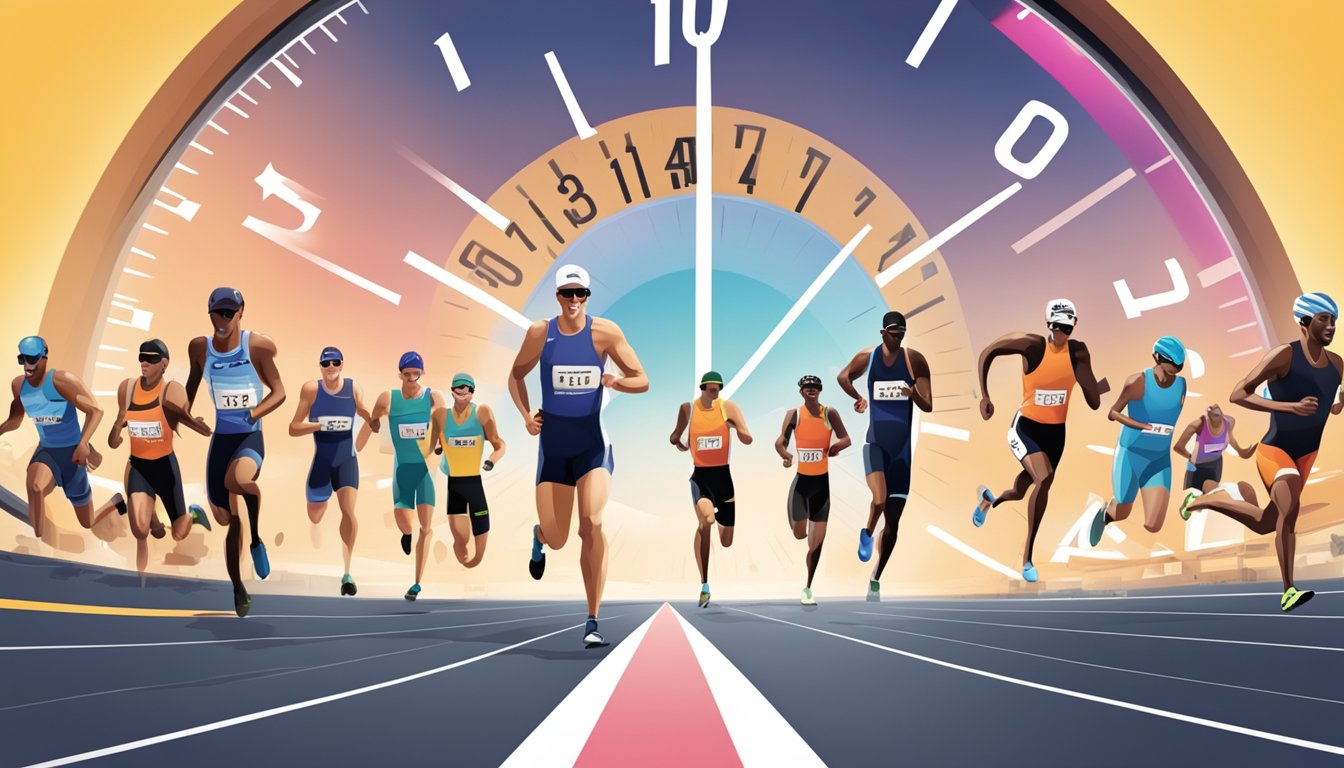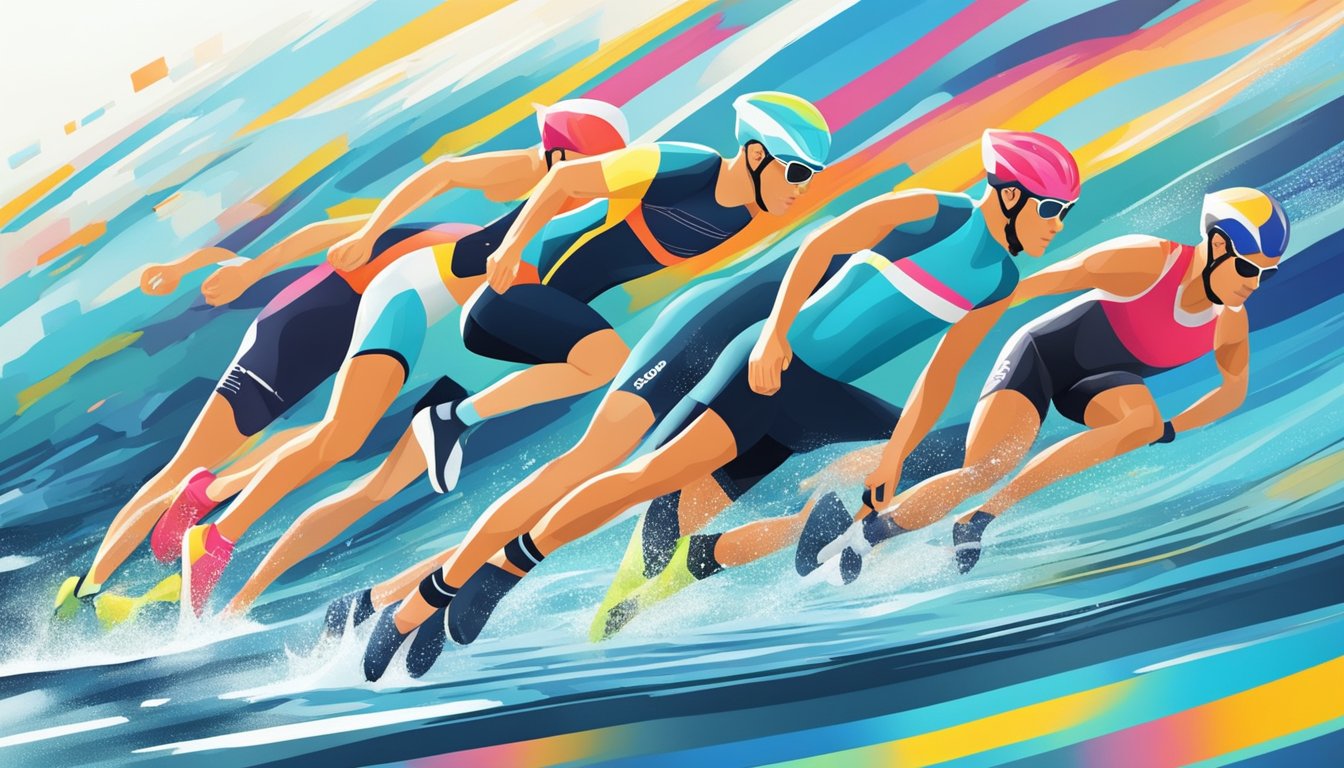If you’re a triathlon enthusiast, then you know that the sport is all about pushing yourself to the limit. Triathlons are some of the most grueling athletic events in the world, requiring participants to swim, bike, and run for miles on end. But for some athletes, completing a triathlon isn’t enough. They want to go faster, push harder, and break records. In this article, we’ll take a look at the fastest triathlon times ever recorded, and explore what it takes to achieve such incredible feats.

Triathlons have been around since the 1970s, but it wasn’t until the 1980s that they really started to gain popularity. Today, there are dozens of triathlon events held around the world every year, ranging from short sprint races to full-length Ironman events. And while every triathlon is a test of endurance, some races are known for being particularly challenging. From the Ironman World Championships in Hawaii to the Escape from Alcatraz in San Francisco, there are a handful of triathlons that attract the world’s best athletes and offer the perfect conditions for record-breaking performances.
Key Takeaways
- Triathlons are some of the most grueling athletic events in the world, requiring participants to swim, bike, and run for miles on end.
- There are dozens of triathlon events held around the world every year, ranging from short sprint races to full-length Ironman events.
- Some races are known for being particularly challenging and attract the world’s best athletes, offering the perfect conditions for record-breaking performances.
What is a Triathlon?

If you’re new to the world of triathlon, you might be wondering what exactly it entails. A triathlon is a multi-sport event that involves three continuous and sequential endurance races. The three races are swimming, cycling, and running, in that order. Triathlons vary in distance, with the shortest being the sprint triathlon and the longest being the full Ironman triathlon.

The most common triathlon distances are sprint, Olympic, and half Ironman. A sprint triathlon typically involves a 750-meter swim, 20-kilometer bike ride, and 5-kilometer run. An Olympic triathlon involves a 1.5-kilometer swim, 40-kilometer bike ride, and 10-kilometer run. A half Ironman, also known as a 70.3, involves a 1.9-kilometer swim, 90-kilometer bike ride, and 21.1-kilometer run.
The full Ironman triathlon is the longest and most challenging triathlon distance. It involves a 3.86-kilometer swim, 180.25-kilometer bike ride, and 42.2-kilometer run. Completing an Ironman triathlon is considered a major achievement in the world of endurance sports.
Triathlons are a test of endurance, speed, and mental toughness. They require athletes to be proficient in swimming, cycling, and running, as well as transitions between each event. Triathletes must be able to pace themselves throughout the race to conserve energy and avoid hitting the “wall” during the run.
In summary, a triathlon is a multi-sport event that involves swimming, cycling, and running in that order. Triathlons vary in distance, with the shortest being the sprint triathlon and the longest being the full Ironman triathlon. Completing a triathlon requires endurance, speed, mental toughness, and proficiency in all three sports.
Fastest Triathlon Times Ever

If you’re curious about the fastest triathlon times ever recorded, you’re in the right place. Triathlon world records are a contentious subject, but we’ll try to give you a good idea of the current fastest times and who holds them.
Ironman distance
In the Ironman distance, the current world record is held by Jan Frodeno of Germany, who completed the race in 7 hours, 35 minutes, and 39 seconds at the 2016 Challenge Roth event. However, in 2023, Magnus Ditlev set a new course record at Challenge Roth, becoming the fastest man ever at an event that didn’t feature a down-river swim thanks to his 7:24:40 winning time that included a 46:47 swim, 3:57:45 bike and a 2:37:09 marathon.
Olympic distance
For the Olympic distance, the fastest time ever recorded is 1 hour, 46 minutes, and 25 seconds, held by Alastair Brownlee of Australia. He set the record in 2016 at the Rio Summer Olympics. The second-fastest time is 1 hour, 47 minutes, and 3 seconds, set by Alistair Brownlee of the United Kingdom at the 2012 London Summer Olympics.
Half Ironman distance
In the Half Ironman distance, the fastest known time is 3 hours, 34 minutes, and 59 seconds, set by Jan Frodeno at the 2018 Ironman 70.3 Gdynia in Poland.
Sub-9
Breaking the nine-hour barrier in an Ironman race is a significant achievement for any triathlete. The current world-best time for completing an Ironman distance race in under nine hours is held by Jan Frodeno, who completed the 2019 Ironman World Championships in Kailua-Kona, Hawaii, with a time of 7 hours, 51 minutes, and 13 seconds.
So, there you have it – the fastest triathlon times ever recorded. While these records are impressive, it’s important to remember that every athlete’s journey and achievements are unique.
Key Triathlon Events
If you are interested in the fastest triathlon times ever, then you are likely familiar with some of the key triathlon events that have produced record-breaking performances. Here are some of the most notable events:
Ironman World Championship (Kona)
The Ironman World Championship, held annually in Kona, Hawaii, is widely considered the most prestigious and challenging triathlon event in the world. The race consists of a 2.4-mile swim, a 112-mile bike ride, and a 26.2-mile run. The course includes difficult terrain and challenging weather conditions, making it a true test of endurance and skill. Many of the fastest triathlon times ever have been set at this event, including the current men’s world record of 7:35:39, set by Jan Frodeno in 2016.
Challenge Roth
Challenge Roth is a triathlon event held in Roth, Germany, that has gained a reputation as one of the fastest and most spectator-friendly courses in the world. The race consists of a 2.4-mile swim, a 112-mile bike ride, and a 26.2-mile run. In 2023, Magnus Ditlev set a new course record at Challenge Roth, becoming the fastest man ever at an event that didn’t feature a down-river swim thanks to his 7:24:40 winning time that included a 46:47 swim, 3:57:45 bike and a 2:37:09 marathon.
Ironman Cozumel
Ironman Cozumel is a triathlon event held on the island of Cozumel, Mexico, that offers a flat and fast course ideal for setting personal bests and breaking records. The race consists of a 2.4-mile swim, a 112-mile bike ride, and a 26.2-mile run. In 2021, the Ironman Cozumel event saw a new course record set by Pablo Dapena Gonzalez with a time of 7:40:34.
Ironman Distance
The Ironman distance triathlon is a grueling event that consists of a 2.4-mile swim, a 112-mile bike ride, and a 26.2-mile run. Many of the fastest triathlon times ever have been set at Ironman distance events around the world, including Ironman Brazil, Ironman Hamburg, Ironman Chattanooga, Ironman Texas, and Ironman South Africa.
Tri-Battle Royale
The Tri-Battle Royale is a triathlon event held in St. George, Utah, that features a unique format with three different race distances. The event includes a sprint distance, an Olympic distance, and a half-Ironman distance, allowing athletes of all levels to participate. The Tri-Battle Royale has quickly gained popularity in the triathlon community and is known for producing fast times and exciting competition.
Record-Breaking Athletes
Triathlon is a sport that requires endurance, strength, and skill. Over the years, many athletes have pushed themselves to their limits to achieve record-breaking times. Here are some of the fastest triathlon times ever achieved:
Male Athletes
Jan Frodeno from Germany holds the record for the fastest Ironman distance race with a time of 7 hours 35 minutes and 39 seconds, which he achieved in 2016. Kristian Blummenfelt from Norway set a new Olympic distance world record in 2021 with a time of 1 hour 44 minutes and 59 seconds. Tim Don from Great Britain set the fastest Ironman 70.3 time with a time of 3 hours 40 minutes and 43 seconds in 2017.
Female Athletes
Daniela Ryf from Switzerland holds the record for the fastest Ironman distance race with a time of 8 hours and 26 seconds, which she achieved in 2016. Chrissie Wellington from Great Britain set the fastest Ironman 70.3 time with a time of 3 hours 54 minutes and 28 seconds in 2009. Sara Svensk from Sweden set a new Olympic distance world record in 2021 with a time of 1 hour 54 minutes and 25 seconds.
Other Record-Breaking Athletes
« Best Triathlon Wheels: Top Picks for Speed and Performance
Triathlon Distances: A Quick Guide to Race Lengths »
Gustav Iden from Norway set a new 70.3 world record in 2021 with a time of 3 hours 21 minutes and 29 seconds. Melissa Hauschildt from Australia holds the record for the fastest Ironman 70.3 time by a female athlete with a time of 3 hours 52 minutes and 44 seconds, which she achieved in 2018. Lionel Sanders from Canada set the fastest Ironman time by a North American with a time of 7 hours 44 minutes and 29 seconds in 2016.
These athletes have pushed themselves to their limits to achieve these record-breaking times. Their dedication and hard work have earned them a place in the history books of triathlon.
Stages of a Triathlon

Triathlon is a multi-sport event that consists of three continuous and sequential endurance races. The three stages of a triathlon are the swim, bike ride, and run. Each stage requires different skills and training.
Swim
The first stage of a triathlon is the swim, which takes place in open water or a pool. The swim course is usually marked by buoys, and the distance can vary from 750 meters to 3.8 kilometers for a full Ironman distance triathlon. The swim can be challenging for some athletes, especially those who are not comfortable in open water.
Bike Ride
After completing the swim, you transition to the bike ride stage. The bike course can be on a closed road or open road, and the distance can vary from 20 kilometers to 180 kilometers for a full Ironman distance triathlon. The bike ride requires a different set of skills than the swim, such as handling the bike, pacing, and nutrition.
Run
The final stage of a triathlon is the run, which is a foot race that can be on a road, trail, or a combination of both. The run course can vary from 5 kilometers to 42.2 kilometers for a full Ironman distance triathlon. The run requires a different set of skills than the swim and bike ride, such as pacing, hydration, and mental toughness.
Transition
There are two transitions during the triathlon, T1 and T2. T1 is the transition from swim to bike, and T2 is the transition from bike to run. These transitions are timed, and athletes must quickly change their gear and prepare for the next stage.
The fastest triathlon times ever are achieved by athletes who have trained and prepared for each stage of the race. The bike times and marathon times are important factors in determining the overall time, but the swim is also crucial, as it sets the tone for the rest of the race.
Locations and Conditions
When it comes to triathlon races, the location and conditions can play a significant role in determining the fastest times ever recorded. Here are some of the notable locations and conditions that have contributed to some of the fastest triathlon times ever recorded:
Cozumel, Mexico
Cozumel is known for its flat course and calm waters, which make it an ideal location for triathletes looking to set personal bests. Four of the top ten fastest men’s times and two of the top ten fastest women’s times were recorded at the Ironman Cozumel race. The excellent weather conditions and the flat course make Cozumel a popular destination for triathletes looking to set records.
Hawaii, USA
The Ironman World Championships in Hawaii, also known as the Big Island, is one of the most prestigious triathlon races in the world. However, the challenging conditions make it difficult for triathletes to set personal bests. The race features a hilly course and high temperatures, which can make it challenging for even the most experienced triathletes.
Chattanooga, USA
The Ironman Chattanooga race features a fast and flat course, which makes it an ideal location for triathletes looking to set personal bests. The swim takes place in the Tennessee River, and the bike and run courses feature mostly flat terrain. The ideal weather conditions and flat course make Chattanooga a popular destination for triathletes looking to set records.
Bahrain
The Ironman 70.3 Bahrain race features a flat course and ideal weather conditions, which make it an ideal location for triathletes looking to set personal bests. The swim takes place in the Arabian Gulf, and the bike and run courses feature mostly flat terrain. The race has become a popular destination for triathletes looking to set records.
Norway
The Norseman Xtreme Triathlon is known for its challenging conditions, which make it difficult for triathletes to set personal bests. The race features a hilly course and cold water temperatures, which can make it challenging for even the most experienced triathletes. However, the stunning scenery and unique experience make it a popular destination for triathletes looking for a challenge.
In conclusion, the location and conditions can play a significant role in determining the fastest triathlon times ever recorded. Whether you’re looking for a flat course and ideal weather conditions or a challenging race with stunning scenery, there’s a triathlon race out there for everyone.
Unique Race Factors
Triathlon races are unique in their own way, and certain factors can have a significant impact on the overall time and performance of the athletes. Here are a few unique race factors that can affect the fastest triathlon times ever:
Drafting
Drafting is a technique used by athletes to conserve energy by riding closely behind another athlete. This technique is not allowed in most triathlon races, as it can give an unfair advantage to the athletes who use it. However, some races, such as the Ironman World Championship, allow drafting in certain sections of the bike course. This can result in faster bike times and overall faster triathlon times.
Down-River Swim
A down-river swim is a swim course that follows the current of a river, allowing the athletes to swim faster with less effort. This type of swim course can result in faster swim times and overall faster triathlon times. However, it can also be dangerous, as the current can be unpredictable and strong.
Motorbikes
In some triathlon races, motorbikes are used to lead the athletes on the bike course. The motorbikes can create a slipstream that can help the athletes save energy and ride faster. However, this technique is not allowed in most triathlon races, as it can give an unfair advantage to the athletes who use it.
Other Factors
Other factors that can affect the fastest triathlon times ever include the weather conditions, the elevation of the course, and the quality of the roads. Athletes who have to battle strong winds, climb steep hills, or ride on rough roads will have a harder time achieving fast times. On the other hand, athletes who have favorable weather conditions, a flat course, and smooth roads will have a better chance of achieving fast times.
In conclusion, there are many unique race factors that can affect the fastest triathlon times ever. While some of these factors are out of the athletes’ control, others can be managed through proper training and preparation. By understanding these factors and how they can affect their performance, athletes can better prepare themselves for their next triathlon race.
The Future of Triathlon
As triathlon continues to evolve, the future of the sport looks bright. With advancements in technology, training methods, and nutrition, athletes are pushing the boundaries of what was once thought possible. Here are some potential developments to keep an eye on in the coming years:
1. More Inclusive Events
Triathlon events have traditionally been geared towards elite athletes, but there is a growing movement towards making the sport more accessible to people of all ages and abilities. Many events now offer shorter distances, relay options, and age-group categories, allowing more people to participate and experience the thrill of triathlon.
2. Improved Course Design
Course design is an important aspect of triathlon, and many race organizers are looking for ways to make their events more challenging and exciting. Expect to see more creative course designs that incorporate natural features like hills, rivers, and forests, as well as man-made obstacles like walls and cargo nets.
3. Better Technology
Advancements in technology are having a major impact on triathlon. From high-tech training equipment to advanced race timing systems, technology is helping athletes train smarter and race faster. Look for even more innovation in areas like wearable tech, nutrition tracking, and virtual reality training.
4. Increased Sustainability
As the world becomes more environmentally conscious, so too does the world of triathlon. Many events are now taking steps to reduce their carbon footprint, such as using renewable energy sources, reducing waste, and promoting sustainable transportation options. The Ironman Hamburg, for example, has implemented a number of sustainability initiatives, including a bike valet service and a zero-waste program.
Overall, the future of triathlon looks bright, with new developments and innovations on the horizon. Whether you’re a seasoned pro or a first-time triathlete, there’s never been a better time to get involved in this exciting and challenging sport.
Frequently Asked Questions
What is the current men’s triathlon world record?
The current men’s triathlon world record is held by Norway’s Kristian Blummenfelt, who completed the 2021 Ironman 70.3 Middle East Championship in 3 hours 23 minutes and 7 seconds.
What is the fastest Ironman time ever recorded?
The fastest Ironman time ever recorded is 7 hours 35 minutes and 39 seconds, achieved by Germany’s Jan Frodeno in 2016.
What is the Ironman 70.3 world record?
The Ironman 70.3 world record is held by Norway’s Kristian Blummenfelt, who completed the 2021 Ironman 70.3 Middle East Championship in 3 hours 23 minutes and 7 seconds.
What is the fastest ever Olympic triathlon split?
The fastest ever Olympic triathlon split is 1 hour 44 minutes and 4 seconds, achieved by Kristian Blummenfelt at the 2021 Tokyo Olympics.
What is the women’s triathlon world record?
The women’s triathlon world record is held by Great Britain’s Kristian Blummenfelt, who completed the 2019 Valencia ITU Triathlon World Cup in 52 minutes and 54 seconds.
What is considered a competitive triathlon time?
A competitive triathlon time varies depending on the distance of the race and the level of competition. For example, a competitive time for an Olympic distance triathlon for an age group athlete may be around 2 hours and 30 minutes, while a competitive time for a professional athlete may be around 1 hour and 50 minutes. It is important to set realistic goals based on your own abilities and level of experience.







